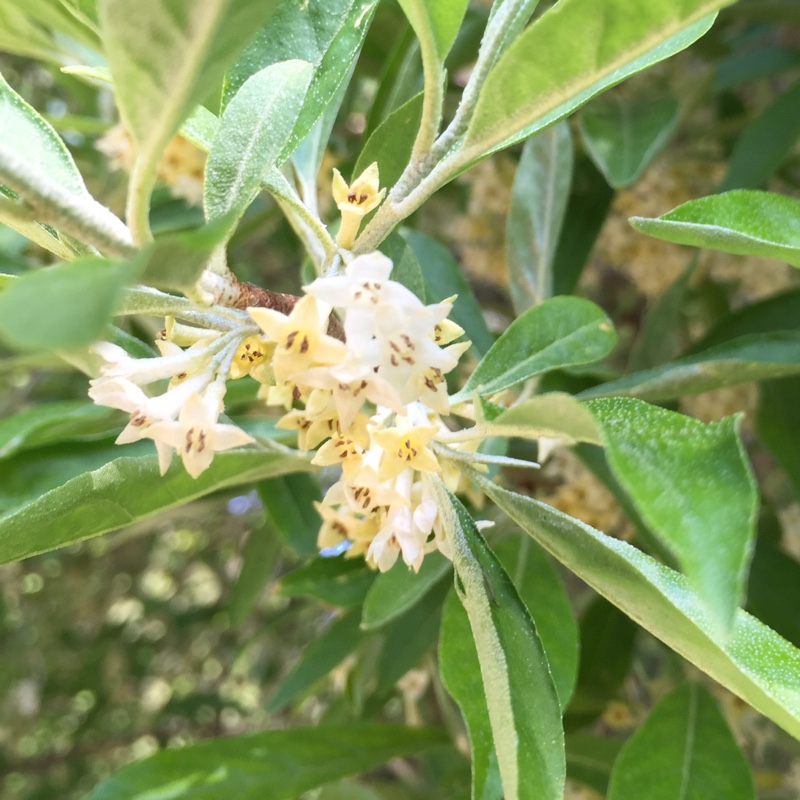
Elaeagnus umbellata
Autumn Oleaster
Oleaster, or Silverberry, is a rounded evergreen or deciduous shrub, that has clusters of tubular, fragrant flowers in Autumn. The foliage is silvery-green, and the leaves are pointed at each end, and somewhat leathery.It is a shrub that is easy to care for, and can be used for screening or hedging. Elaeagnus umbellata, or Autumn Oleaster, has silvery yellow flowers followed by berries that turn red
Contributed by @bevkb
-
Full sun to partial shade
-
Occasional watering
-
Frost Hardy: 23F (-5°C)
-
Moist and free draining
Common name
Autumn Oleaster
Latin name
Elaeagnus umbellata
type
Flowering Shrub
family
Elaeagnaceae
ph
6.0 - 8.0 Acid - Neutral
Plant & bloom calendar
-
Best time to plant
-
When the plant will bloom
full grown dimensions
 5.00 M
5.00 M
5.00 M
5.00 M
Elaeagnus umbellata
Oleaster, or Silverberry, is a rounded evergreen or deciduous shrub, that has clusters of tubular, fragrant flowers in Autumn. The foliage is silvery-green, and the leaves are pointed at each end, and somewhat leathery.It is a shrub that is easy to care for, and can be used for screening or hedging. Elaeagnus umbellata, or Autumn Oleaster, has silvery yellow flowers followed by berries that turn red
Flowering
From Early Autumn TO Mid Autumn
Oleaster, or Silverberry, bears clusters of small tubular flowers in Autumn, which are followed by small single-seeded berries that are edible in some varieties
Planting
From Mid Autumn TO Late Autumn
Plant Oleaster, or Silverberry, in Autumn, when the plant is dormant. Plant in the position where you intend to keep it, as these shrubs do not like to be moved once established. The soil needs to be free-draining and moist, and in full or partial sun
Propagating by cuttings
From Early Autumn TO Mid Autumn
Take semi- ripe cuttings from this season's growth in Autumn. Cut neatly, just below a leaf node, a 5" approx. piece of a healthy shoot that has soft growth at the tip. pinch out the growing tip, and cut off the bottom leaves. Dip the bottom of the cutting in hormone rooting powder, and carefully place in a pot of cutting compost with the leaves just above the level of the compost. Water, label, cover with a polythene bag, and place in a warm, bright place, out of direct sunlight. Take the polythene bag off periodically for a while for ventilation (at least twice a week)













